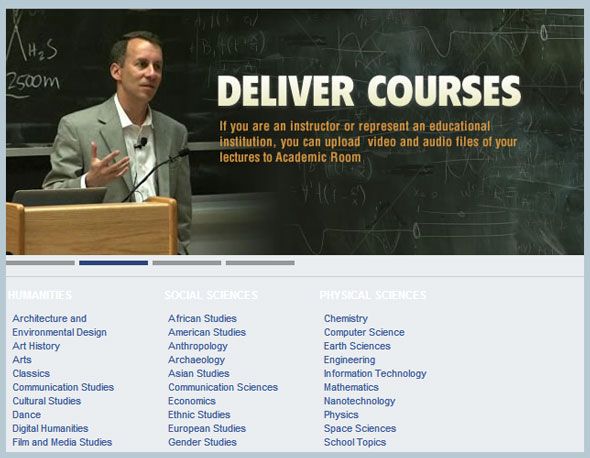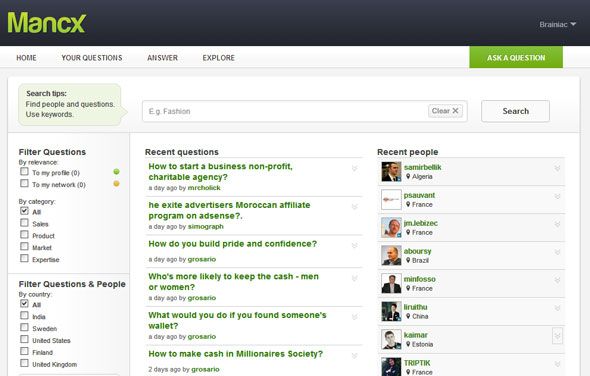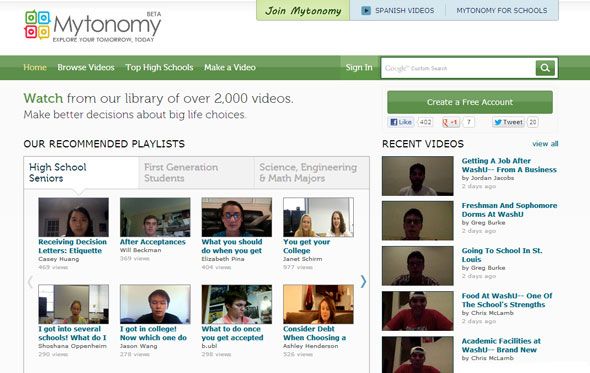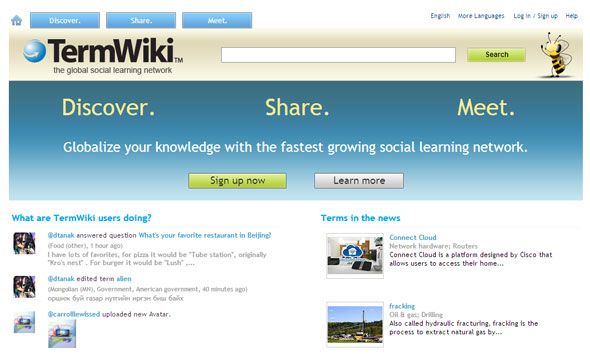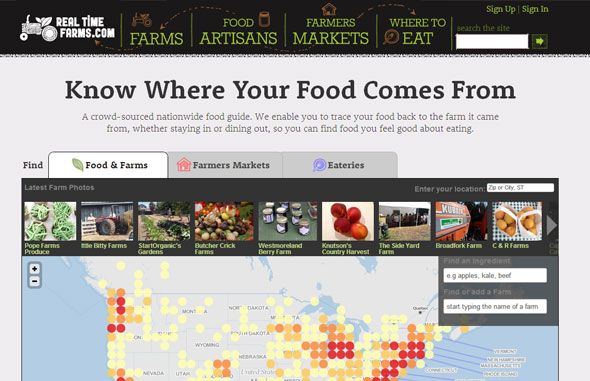Most of us remember our childhoods and the fun of treasure hunts. Searching for knowledge is a digital treasure hunt that keeps us pretty much occupied now. Sharing knowledge is just another side to the great classless spirit that finds space on the web. We have seen earlier how crowdsourcing web services have tapped the power of collective wisdom for the betterment of all. Crowdsourcing is the new mantra that has gained ground and is here to stay. We earlier saw 7 Crowdsourced Projects That You Can Take Part In Right Now. Then there’s always Kickstarter which has turned entrepreneurship on its head with crowdfunding projects and making successes out of them.
So, why not tap into some fresh new crowdsourcing sites that help us share knowledge? Knowledge has many flavors and these six websites demonstrate the benefits of crowdsourcing in each…
Education - Academic Room
Academic Room is a well-constructed educational website. Why not; it was developed by Harvard University as an online platform for inter-disciplinary collaboration and knowledge sharing among academics, researchers, and students. The educational platform is arranged around academic disciplines and sub-disciplines like Humanities, Physical Sciences, Social Sciences, and also around professions. Every member can create a profile and tap into the shared knowledge resources like video lectures, bibliographies, journal articles, books, reviews, images, ancient manuscripts and audio recordings. You can use the site to create your own academic profile and share it with your connections.
How to use the website: Follow and network with peers and experts in your chosen field by using the neatly categorized directories.
Ideas And News - Big Think
As the name says, the site is about Big Ideas. The blog-styled format brings to you ‘breaking’ ideas that give an insight into how the world is shaping up across various fields from the arts to the politics. The site says that every idea on Big Think comes from their ever-growing network of 2,000 Big Think fellows and guest speakers, who comprise the top thinkers and doers from around the globe.
How to use the website: Read the well compiled articles in categories other than your own and try out Big Think’s Summer School for the Real World, the free nine week long curated series that is all about the knowledge and skills you’ll need to thrive in the 21st century workplace.
Business - Mancx
You can ask professional and business related question on LinkedIn. But Mancx gives the business Q&A model more of a laser focus by matching you with the right people who can help you out. Mancx is a marketplace for Q&A and knowledge sharing. Though, it is a free service and open to everybody - you can also choose to buy information from another person at an agreed upon price. Alternatively, if you have expert knowledge, you can also earn money by answering questions.
How to use the website: Think of Mancx as a business knowledge trading platform. Sign-in with LinkedIn and get answers for free or at a cost. You can also use your expertise to answer questions and earn money in the process. Mancx says it has half a million connections that you can source for business answers.
Career Advice – Mytonomy
Mytonomy is a video mentoring website that has more than 2000 videos. The videos relate to peer to peer mentoring about college and career issues. The social network on video is a good source to evaluate your choice of college and the career that decision generally inspires. The site says - We reduce stress, and save parents time and money by improving the “fit” between their student and the choices they make.
How to use the website: Tap into 400+ videos on college specific application processes, 900+ college specific videos, 300 videos on major options, and 58 career guidance videos.
Dictionary - TermWiki
TermWiki defines itself as a global learning network, but it is at its core a short encyclopedia. Created with the active participation of the open community, TermWiki, like Wikipedia, crowdsources the task of curating multi-lingual terms and their definitions. 1500+ subjects are covered here with terminologies specific to them. Think of it as a dictionary of terms born out of collaboration.
How to use the website: TermWiki is a community and you can actively participate to increase your knowledge through the subjects and terms it covers. You can contribute by submitting your own term or translating a term into another language. Build up your glossary and become a better learner.
Food - Real Time Farms
The U.S. specific crowdsourced site seeks to document the entire food system. The aim is to give you a reference tool that will tell you where the food on your dinner table comes from. The crowdsourced food guide helps you make healthy decisions about your food by tracing the exact farm or market where the food comes from. When you know the source, you can make the choice depending on whether the food is local, organic, grass fed, free range, pasture raised, hormone and antibiotic-free, wild caught, or hydroponic.
How to use the website: The site has user created directories on farms, farmers markets, and eateries. All information is supported with latest photos. You can check them out to support your food choices.
If Wikipedia can be made a success with crowdsourcing knowledge, then these specialized websites also stand a chance. What do you think? Do you find these websites useful for the longer haul? Tell us.


